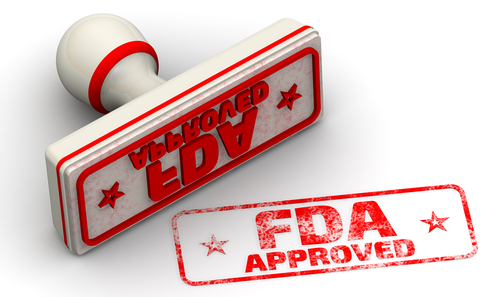Givosiran Approved by FDA for Treating Adults with Acute Hepatic Porphyria

The U.S. Food and Drug Administration (FDA) has approved Alnylam Pharmaceuticals’ investigational candidate givosiran, which will be marketed as Givlaari, for the treatment of adults with acute hepatic porphyria (AHP).
The approval comes less than four months after the FDA accepted the therapy’s new drug application (NDA) for that indication, which also was granted priority review status.
“We believe the approval of Givlaari represents a landmark event … providing new hope for patients and their caregivers living with the debilitating manifestations of AHP and unpredictable nature of AHP attacks,” John Maraganore, PhD, Alnylam’s CEO, said in a press release.
Alnylam also announced it is working with leading payers to accelerate patients’ access to Givlaari, and that it reached an agreement in principle with Harvard Pilgrim to cover the therapy.
This and other potential agreements will be based on confirmed similar Givlaari’s benefits in the real-world setting and rebates to participating payers if the number of diagnosed patients they cover exceeds initial predictions based upon current estimates of disease occurrence. Commercially insured patients are expected to have little-to-no out-of-pocket costs to receive Givlaari, the company said.
Givosiran is an investigational RNA-based therapy designed to block the activity of the aminolevulinic acid synthase 1 (ALAS1) enzyme, preventing the accumulation of toxic molecules that cause AHP. This way, the therapy has the potential to prevent or reduce the occurrence of severe and life-threatening attacks, and ease symptoms of AHP. RNA is a molecule generated from DNA that guides the production of a specific protein.
Givosiran’s FDA-approval was based on positive results of the Phase 3 ENVISION study (NCT03338816), which evaluated the safety and effectiveness of givosiran in reducing porphyria attacks in people with AHP.
A total of 94 AHP patients, including 89 with acute intermittent porphyria (AIP), were recruited at 36 sites across 18 countries, making it the largest-ever interventional study conducted in AHP. Participants were assigned randomly to receive either 2.5 mg/kg of givosiran or a placebo subcutaneously (under-the-skin) once a month for six months.
ENVISION’s final data showed that givosiran decreased patients’ annual rate of porphyria attacks by 74%, compared with a placebo. It also lowered the levels of aminolevulinic acid (ALA), a key biomarker of AHP, in patients’ urine by 92%, which was consistent with previous interim data.
Givosiran was safe and well-tolerated, with no reports of new safety concerns. The most common adverse events (side effects) in givosiran-treated patients included nausea, injection site reactions, abnormal kidney function, and fatigue.
After completing the trial’s six-month treatment, all 93 eligible participants decided to continue (or switch from placebo to) givosiran treatment for an additional 30 months in an open-label extension (OLE) study.
Updated data from the OLE study revealed that givosiran’s benefits and safety profile are consistent are persisting over time and that patients switching from placebo to givosiran upon OLE study entry also showed a rapid and sustained reduction in both attack rates and ALA urine levels.
The company expects that Givlaari will be available for shipment to healthcare providers in the U.S. by year-end.
The recommended dose of Givlaari is 2.5 mg/kg once monthly by subcutaneous injection. Full prescribing information can be found here.
“We are grateful to the investigators, patients and families who have helped make this new treatment option a reality for the AHP community … [and] we also commend the FDA for recognizing the immense medical need and granting this approval so quickly,” Maraganore said.
Manisha Balwanii, MD, ENVISION’s principal investigator, added that “adults with AHP now have a new treatment option that has demonstrated the ability to reduce the frequency of porphyria attacks by specifically addressing factors associated with attacks and other disease manifestations of AHP.” Balwani also is an associate professor of the Department of Genetics and Genomic Sciences and Department of Medicine at the Icahn School of Medicine at Mount Sinai in New York.
“With the approval of Givlaari … I hope to see my patients and those across the country be able to live more normal lives with fewer porphyria attacks,” Balwani said.
Alnylam also submitted a marketing authorization application (MAA) of givosiran to the European Medicines Agency (EMA), and it has been accepted.
Givosiran previously received breakthrough therapy designation from the FDA and priority medicines, or PRIME, designation from the EMA, as well as orphan drug designation from both regulatory agencies.
These designations are intended to provide regulatory support and financial benefits, to accelerate the clinical development and review of givosiran, and to ensure marketing exclusivity for a period of time (seven years in the U.S. and 10 years in the European Union) upon regulatory approval.






